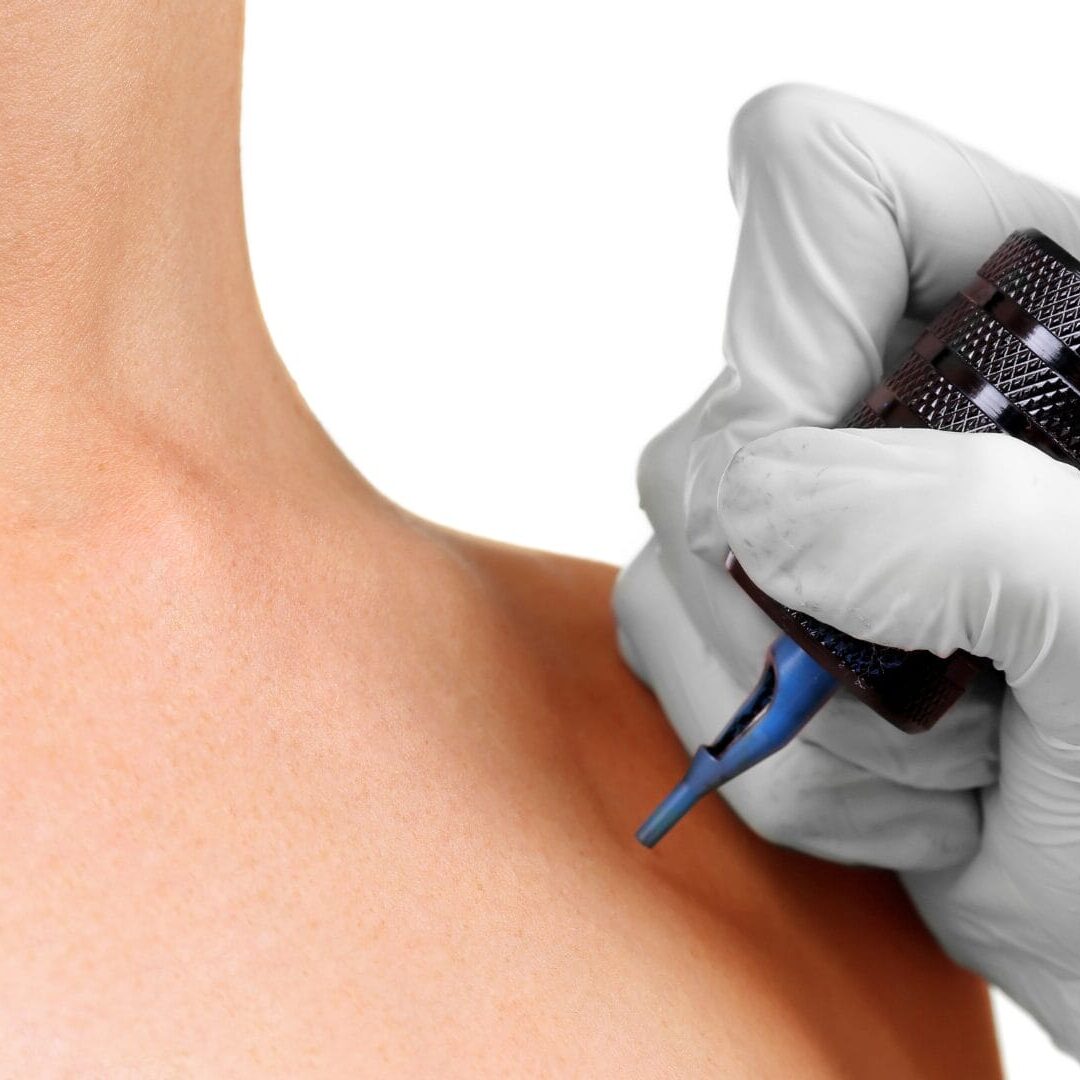Micropigmentation
Here at The McIndoe Centre, we provide medical tattooing to recreate 3D nipples and areola after breast reconstruction surgery.
Micropigmentation is a technique used to create permanent makeup or tattoos on the skin for medical purposes. It involves inserting ink into the skin to create a lasting image or design. However, permanent micropigmentation can fade over time and with sun exposure.
A custom blend pigment matching the natural skin colour is deposited into the dermal layers of the skin using a small hand-held machine. The specialist equipment used is refined, quiet and gentle.

Nipple and areola micropigmentation
Nipple and areola micropigmentation involves the implantation of pigment into the skin to create the illusion, or enhance, a nipple and areola.
Who is it suitable for?
Patients who have undergone breast reconstruction surgery following a diagnosis of breast cancer or the discovery of a gene mutation often opt for nipple and areola micropigmentation.
Breast reconstruction surgery focuses on the rebuilding of the breast. The majority of the time, this means there will be no nipple, unless you have a nipple-sparing mastectomy.
This treatment is often the final stage of a patient’s breast journey and can feel like the ‘finishing touch’ to restore confidence and uplift personal wellbeing.
The size, shape and colour are taken into careful consideration to mimic the look of a natural areola.
How long does it take?
The procedure usually requires two appointments, four to six weeks apart. The first appointment starts with a consultation, outlining what the patient wishes to achieve. The colour, shape and placement will also be discussed.
The McIndoe Centre carries out single and bilateral areola tattoos. Each areola tattoo takes approximately 40 to 50 minutes, which includes mapping, colour matching and pigmentation. If necessary a numbing cream may be needed prior to the procedure.
What to expect after the treatment
The tattooed area will go through the healing process, which includes:
- Heal - the body’s natural defence will create fine scabs to protect the area whilst healing.
- Peel - after a few days, the scabs will fall away.
- Fade - after your appointment, the colour may appear darker, but within a few days after healing, you will see a lighter colour.
A second visit usually includes a colour boost and any necessary adjustments and detailing. Age, skin type, medication and lifestyle can all affect the pigment, so further colour boosting over the years can be carried out to maintain the desired look.
Specialists that perform this procedure
Find out more about the McIndoe Centre
We provide outstanding patient experiences
As a nationally recognised hospital of excellence in plastic, reconstructive, ophthalmic and maxillofacial surgery, we have demonstrated ourselves to be: effective, responsive, caring, safe and well-led. Recently rated ‘good’ by the CQC, we are committed to treating our patients and each other with kindness, respect and dignity resulting in life-changing outcomes.
Patient testimonials
Find out what it’s like to be a patient, from the people who matter the most.









